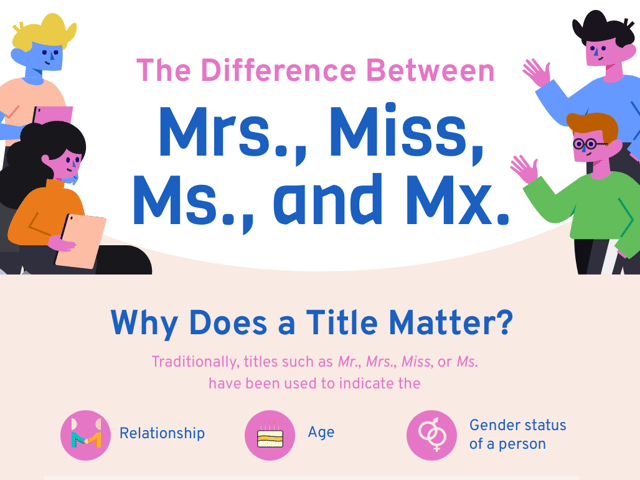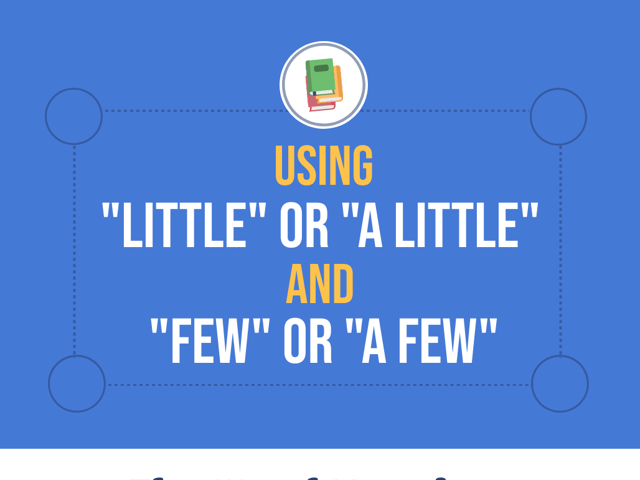
The Difference Between Mrs., Miss, Ms., and Mx.
As Juliet famously asks in the play Romeo and Juliet, “What’s in a name? That which we call a rose by any other name would smell as sweet.” (Shakespeare, 2.2.43-44) The thing is, names are very important and what you call someone and the honorific title you use to address them can affect the relationship from the first word.
Why Does a Title Matter?
Traditionally, titles such as Mr., Mrs., Miss, or Ms. have been used to indicate the relationship, age, and gender status of a person. These days, those titles have taken on new meaning and importance, so it’s important to know what they mean and how to use them so as not to offend anyone.
Traditional Titles for Men
For men, the title choices are relatively simple. Males are typically referred to as Mr., an abbreviation of mister or master and pronounced as mister. This title is used regardless of age or whether the man is married or not. However, the use of gender-specific pronouns is beginning to lose support and some people prefer the gender-neutral Mx. (usually pronounced as mix) as their title so as to avoid selecting from traditional binary choices. Mx. can be used to refer to any person who prefers not to indicate their gender and is considered gender-neutral.
Traditional Titles for Women
For women, the title choices grow dramatically and many are rooted in marital status and age. Miss is generally the term used to address unmarried young women or girls under the age of 18. However, Miss can be an offensive term when used to refer to a woman of a more mature age. Ms. (pronounced mizz) is used to address a woman whose marital status may be unknown or who is over the age of 18. It is becoming a more popular choice to minimize potential offense by using an incorrect or inaccurate title. Once they marry, many women use the title Mrs. (pronounced misses) to indicate they are married and using their husband’s last name. The title may also be kept by widows who have lost their husbands. But these gender-specific honorifics don’t work for everyone.
Additional Titles
As with the male-assigned title of Mr., the traditional titles for women Miss, Ms., and Mrs. can also be replaced with the gender- and age-neutral title Mx., allowing people to use a respectful title that moves beyond binary choices. This title also does not indicate marital status. Some titles such as Dr., (abbreviation of doctor and referring to someone practicing medicine or who has earned a doctoral degree in a particular field), Esq. (abbreviation for esquire or esquiress and referring to someone who practices law), and Hon. (abbreviation for honorable and usually used to refer to high-ranking government officials) are also not gender-specific, though they are used to refer to people in specific professions.
The wonderful thing about language is that it continues to change and evolve as society changes and evolves. The trick is to keep up with the changes so that you are not using outdated or offensive terms. One good way to avoid misusing a title is to ask the person what pronouns and title they prefer and be respectful of their choice.

Keep Reading

English Basics Blog
How to Write a Compare and Contrast Essay
When you were in school, you probably had to write a lot of different t…

English Basics Blog
What are Superlatives?
We spend our lives making comparisons, whether we realize it or not. Wh…

English Basics Blog
When to Use “Little” or “a Little” and “Few” or “a Few”
Few aspects of the English language can grow as convoluted as when to u…